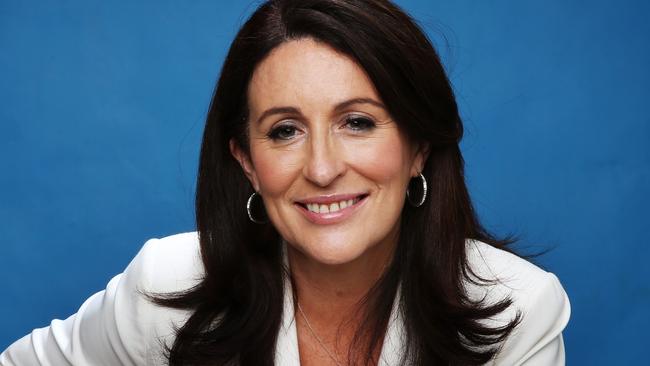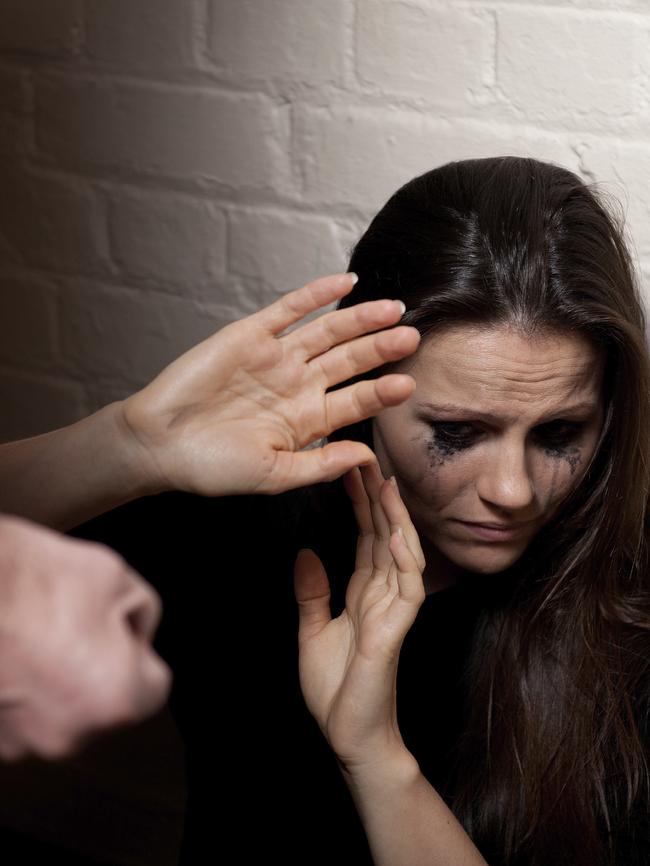Miranda Devine: The brutal truth about domestic violence
THE domestic violence bandwagon has been taken up with such gusto by the professionally virtuous that it is becoming meaningless, Miranda Devine writes.

Opinion
Don't miss out on the headlines from Opinion. Followed categories will be added to My News.
THE domestic violence bandwagon has been taken up with such gusto by the professionally virtuous that it is becoming meaningless.
The chattering classes have latched on to it as their feminist cause célèbre, with the dangers of knee-jerk reactions from authorities ensuring future miscarriages of justice.
Take Cape York Labor MP Billy Gordon. He denies allegations of domestic violence and, in our system of justice, we’re supposed to be innocent until proven guilty.
Instead, Gordon is being pressured to quit parliament on the strength of allegations from an ex-partner of 23 years, which only surfaced when he was elected. But he is guilty of being a man, so to hell with the presumption of innocence.
Thirty-year-old break-and-enter offences are dredged up to besmirch his character, sending the message to anyone trying to break out of the cycle of despair in indigenous communities that rehabilitation is never a prospect.
We’re told domestic violence is an “epidemic”, and statistics are cited that make virtually every man in Australia an incipient woman-basher.
Gordon and men like him are just collateral damage in a feminist campaign that’s more about grabbing power and public funding than it is about saving women from violent men.
And what about violent women? It’s a little known fact that more than one third of victims of domestic violence are male and they’re less likely to report the abuse.
Of the 196 victims killed in 2010-12 by an offender with whom they shared a domestic relationship, 38 per cent were male according to the Australian Institute of Criminology.
Domestic violence homicides have declined markedly in Australia to the lowest rate in 25 years. But we’re suddenly in crisis mode.
Bill Shorten has called for a royal commission into domestic violence and the new Victorian Labor government has vowed to hold one.

Tony Abbott has made it an urgent priority for the Council of Australian Governments this month and has appointed former Victorian Police Commissioner Ken Lay and the Australian of the Year Rosie Batty as founding members of an advisory panel on violence against women.
But it’s not as if the issue is not already being taken seriously. Domestic violence is the No.1 priority for every police patrol in NSW.
A trial of videotaping domestic violence victims at the scene when police show up is excepted to increase success of prosecutions and minimise what officers call the “Tammy Wynette” stand-by-your-man syndrome in which women recant allegations to preserve a relationship.
Police are frustrated when they are unable to prosecute violent perpetrators, but they are also realistic about the fact that as many as one-in-four domestic violence allegations that come before the Family Court are bogus, and can be used by women as a weapon.
The Gillard government fed this trend when it undermined the shared parenting reforms of the Howard era, and broadened the definition of domestic violence to include verbal or “financial abuse” and emotional manipulation.
This ensures any allegation of abuse from a mother in a custody battle becomes grounds for denying a father access to his children.
Meantime, the actual epidemic of child abuse is ignored by comparison.
Take the so-called Pogo Stick case in which a malnourished seven-year-old boy was killed by his mother in Oatley, after a lifetime of horrendous abuse and neglect.
The court heard he was starved, beaten, and made to eat his own faeces. His undernourished body was covered in infected wounds and bruises and riddled with fractures.
Dozens of people reported the abuse before the young boy died, including horrified campers at Bulli Beach, who saw the starving boy beaten and forced to run laps on the beach until he collapsed.
They saw him sobbing outside his tent in the freezing cold, wearing just a singlet and a towel, begging for water.
Yet this awful case struggled to make headlines last week when the mother pleaded guilty to manslaughter, having earlier claimed her son had fallen off a pogo stick.
That may be due in part to the misguided privacy laws in NSW which forbid the publication of photographs of dead children who are the subject of court matters.
Without a name and a face to humanise a case, media outlets don’t have a story to tell, and compassionate strangers aren’t moved enough to campaign for change.
Around the country every day increasing numbers of children are tortured, abused, and neglected.
They are trapped in a living hell to which they are returned over and over by authorities; ignored by a society afraid to create another Stolen Generation.
That’s an epidemic. That’s a crisis. And, unlike adult women in abusive relationships, the children have no choice.


 Domestic violence homicides have declined markedly in Australia to the lowest rate in 25 years. But we’re suddenly in crisis mode
Domestic violence homicides have declined markedly in Australia to the lowest rate in 25 years. But we’re suddenly in crisis mode

